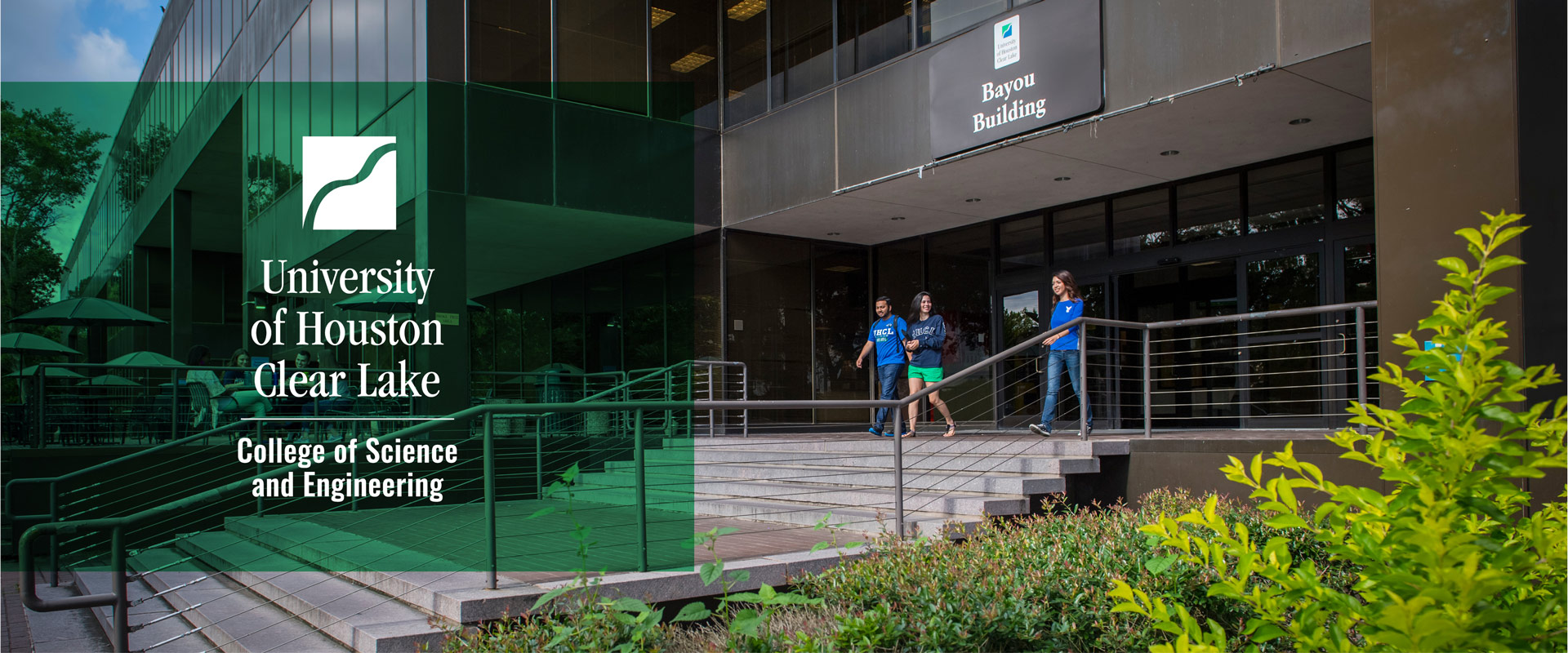- Future Students
- How to Apply
- Visit UHCL
- Admitted Students
- Tuition, Costs and Aid
- Degrees and Programs
- Contact Admissions
- Current Students
- Class Schedule
- Academic Calendar
- Advising
- Events
- Library
- Academic Resources and Support
- Student Services and Resources
- Alumni
- Lifetime Membership
- Alumni Events
- Update Your information
- Awards and Recognitions
- Give to UHCL
UH-Clear Lake microbiologist continues research into post-Harvey effects
October 26, 2017 | Jim Townsend

A University of Houston-Clear Lake microbiologist will continue to focus on the ecological damage done by Hurricane Harvey, thanks to rapid response funding from the National Science Foundation.
Assistant Professor of Microbiology Michael LaMontagne received nearly $24,000 to continue investigation of the health risk associated with floodwaters.
Before, during and after the storm, LaMontagne and students in collected samples from six locations in the Clear Lake watershed.
After the storm, LaMontagne reported an alarming spike in E. coli bacteria around Clear Lake – far above the Environmental Protection Agency’s acceptable threshold for recreational freshwater. As he expected, the bacteria levels receded to pre-storm conditions the following week.
The research grant will endeavor to determine the microbial communities in floodwaters generated by Hurricane Harvey, as assessed by the level of fecal indicator bacteria, such as E. coli, but also by sequencing the DNA of specific microbes found in the watershed samples. This will quantify the contribution of human feces and sewage in the samples and improve the accuracy of the assessment of risk of disease to humans. The research will also assess heavy metals, salinity, dissolved oxygen and nutrients in the waterways’ to assess the recovery of Clear Lake to pre-storm conditions as assessed by genetic analysis of the microbes.
“Rising sea levels and warming tropical waters may double the frequency of coastal flooding in the next few decades,” LaMontagne said. “Hurricanes are supposed to increase in frequency and severity with global warming. We need to develop protocols to both assess the health risks associated with these events and implement long-term monitoring and rapid-response protocols.”
LaMontagne is collaborating on the project with George Guillen, associate professor of biology and environmental science at UHCL and executive director of the Environmental Institute of Houston. Other collaborators include Associate Professor Terry Gentry at Texas A&M University and Associate Professor Michael Allen at the University of North Texas Health Science Center. The collaborating universities also received NSF funding to conduct the genetic research in LaMontagne’s samples.
UH-Clear Lake offers bachelor’s and master’s degrees in biology with a specialization in ecology/microbiology/aquatic/marine. For more information, visit www.uhcl.edu/academics/degrees.






